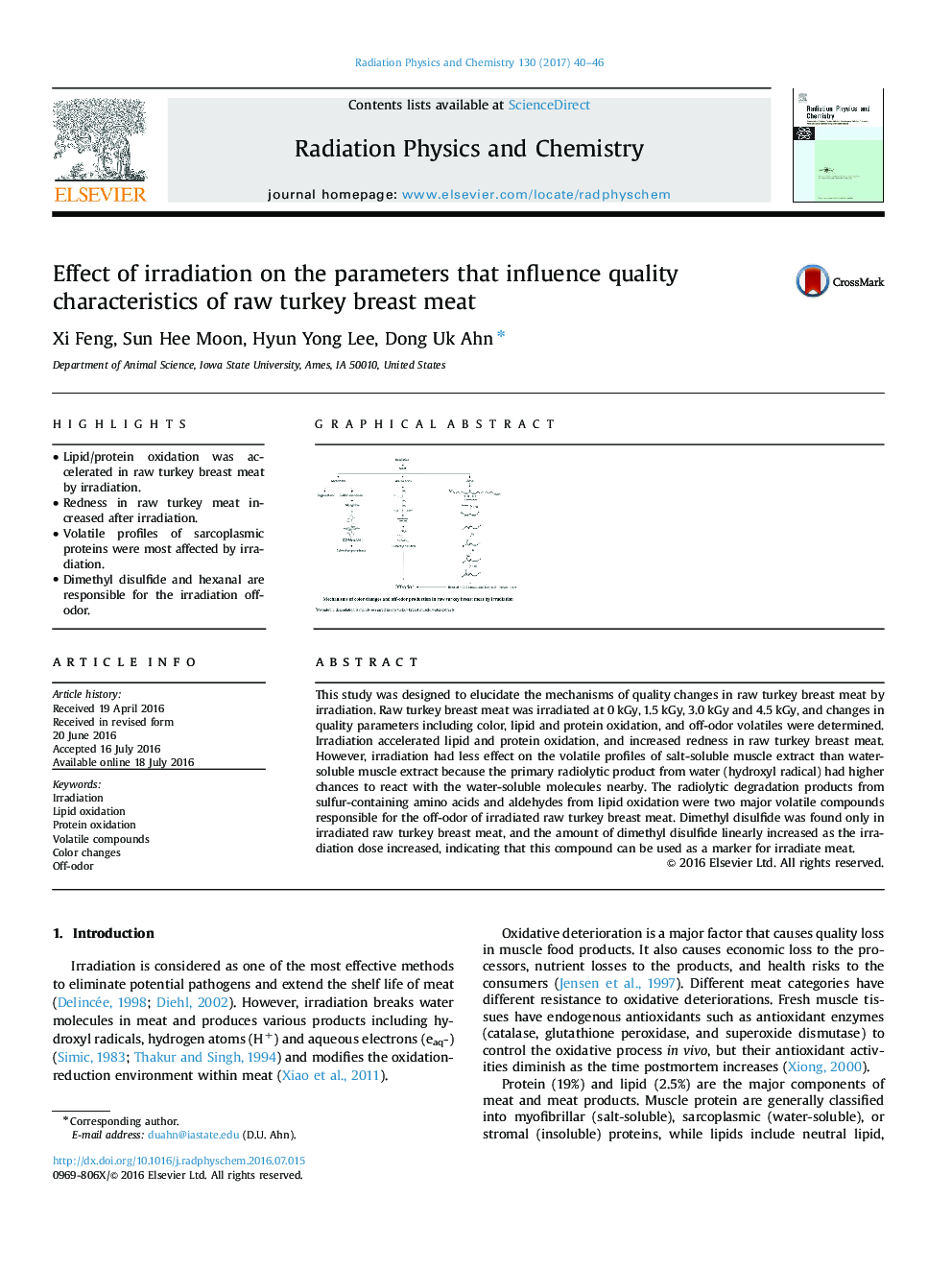| Article ID | Journal | Published Year | Pages | File Type |
|---|---|---|---|---|
| 1885736 | Radiation Physics and Chemistry | 2017 | 7 Pages |
•Lipid/protein oxidation was accelerated in raw turkey breast meat by irradiation.•Redness in raw turkey meat increased after irradiation.•Volatile profiles of sarcoplasmic proteins were most affected by irradiation.•Dimethyl disulfide and hexanal are responsible for the irradiation off-odor.
This study was designed to elucidate the mechanisms of quality changes in raw turkey breast meat by irradiation. Raw turkey breast meat was irradiated at 0 kGy, 1.5 kGy, 3.0 kGy and 4.5 kGy, and changes in quality parameters including color, lipid and protein oxidation, and off-odor volatiles were determined. Irradiation accelerated lipid and protein oxidation, and increased redness in raw turkey breast meat. However, irradiation had less effect on the volatile profiles of salt-soluble muscle extract than water-soluble muscle extract because the primary radiolytic product from water (hydroxyl radical) had higher chances to react with the water-soluble molecules nearby. The radiolytic degradation products from sulfur-containing amino acids and aldehydes from lipid oxidation were two major volatile compounds responsible for the off-odor of irradiated raw turkey breast meat. Dimethyl disulfide was found only in irradiated raw turkey breast meat, and the amount of dimethyl disulfide linearly increased as the irradiation dose increased, indicating that this compound can be used as a marker for irradiate meat.
Graphical abstractFigure optionsDownload full-size imageDownload as PowerPoint slide
